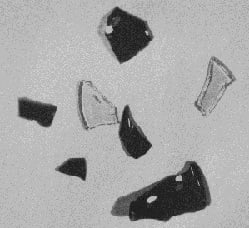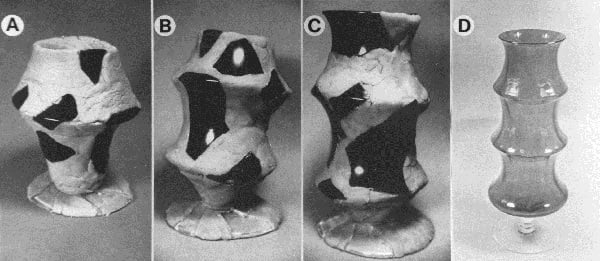What Science Can and Cannot Do
MODERN SCIENCE has accomplished marvels that seemed like impossible dreams a few decades ago. Albert Einstein determined that matter could be converted into energy, and the atomic scientists did it.
It now seems common place to have nuclear power plants producing electricity. Science has come up with the knowledge and technology that made it possible to send men to the moon and back, to transplant hearts from one person to another, and to cure diseases that have plagued mankind for thousands of years.
With a record like this can we help but wonder how it is possible for scientists to be successful in so many lines of research, and yet be wrong in their belief in evolution? How can a few creationists be right and all the rest of the scientists wrong? In spite of the problem evident in these questions there are simple and logical reasons why we can believe that the Bible teaching of Special Creation is intellectually reasonable.
The Scientific Process
First, it is necessary to understand how the scientific process works. All of the various phases of scientific research can be grouped under two headings: (1) collecting data and (2) interpreting data. The conclusion that a scientist reaches from his research is based on the data, which is the more objective part of research, and on his interpretation of what the data means. Scientific research always involve data and interpretation; either one is useless without the other. To help us visualize how this works we will consider the relationship between data and interpretation in a specific research project. An example from the field of archeology illustrates important principles common to all fields of science.

Fig 1 Glass pieces
Let us imagine a hypothetical archeologist named William. He is uncovering the ruins of an ancient city built by a people whose culture has long since ceased to exist. As he digs he finds several pieces of glass, which look as though they might be part of a broken vase (Fig. 1). There are no intact vases of this type available for comparison, so if William wants to know what the vase looked like he will have to do his best to reconstruct it from the pieces that he has. These pieces of broken glass are his data— they are the only facts he has about the vase.
Interpretation of the Data
As long as they are isolated pieces of glass they are of little value, but William can now start to work on the second phase of his research—interpreting the data. He can study the shape of each piece, and try to picture how the pieces could be positioned in relationship to each other to form part of a vase. In his attempt to reconstruct the original shape of the vase he must use his imagination and creativity, combined with all he knows about other vases. If all of the pieces fit the finished reconstruction (Fig. 2a below) it can be accepted as a theory of how the vase looked. This is William’s best estimate of the correct relationship between the isolated pieces of data. The degree of accuracy of this theory will depend on the skill and creativity of William, and also on how much of the data is missing, as William must use his judgment to fill in the gaps.
Another interpretation of the data
William publishes the results of his research in a scientific journal so that his fellow scientists can benefit from the work he has done. Another archeologist, whom we will call Margaret, reads his publication and doesn’t agree with his interpretation. How can she disagree? Wasn’t his work based on scientific facts?
The pieces of glass are the only facts, and she does not disagree with the facts, or data, but only with William’s interpretation of those facts. If we had all of the pieces of the vase they would only fit together one way, like a jigsaw puzzle. However, when most of the data is missing, there will be uncertainty as to the correct interpretation, and the more of the data that is missing, the more room there will be for various interpretations of the data by different scientists. Margaret thinks the vase should be taller, with two ridges around it instead of one. She successfully develops a reconstruction that fits her idea, and also fits all of the data that is available (Fig. 2b). We now have two interpretations that fit the same data, and the only way to determine which is more correct is to find more data. William and Margaret both do more research and are able to find more pieces. Each one will then compare the new pieces to their theory, to see if it fits. One of the pieces fits Margaret’s theory, but not William’s. The other piece does not fit either theory, so both theories must be revised.

Fig 2 Reconstructions and actual vase
The best theory is not perfect
A new theory is developed that fits all of the data that is now available (Fig. 2c). This theory fits all of the original data plus the new data, so can we assume that it is correct? No, we cannot, because there is still much missing data.
If Margaret and William had access to the original they would see that it actually was different from their attempted re constructions. Actually, it was shaped as illustrated in Figure 2d. As we compare it with the reconstructions we can see that there are some similarities in all of them. We can also see that the first reconstructions were incorrect in many respects, and that finding more data helped to correct some of the errors, and bring the theory closer to the correct picture.
This same process is involved in all scientific research. The scientist must first collect data. The data are the more objective part of research, illustrated in our example by the pieces of glass. Other examples of data in various fields would include a set of fossil bones (paleontology), measurement of blood pressure under various conditions (physiology), or measurements of the speed of falling objects (physics).
Interpretation of data is subject to bias
The scientist must then interpret the data, or figure out what it means. Why are the fossil bones found where they are? Why is the blood pressure different under different conditions? And why are the objects falling at varying speeds?
Scientific data almost never dictate the conclusion directly, but must be interpreted by the researcher. The interpretation is an attempt to reconstruct the true relationship between separate pieces of data.
Scientists never do their interpreting in an unbiased vacuum. When they were being trained to be scientists they learned various theories and “laws” that were considered to be true. In the creative and individualistic process of interpreting data, the scientist considers everything that he has learned about previous studies in his field, and decides how he thinks his data best fits into the existing body of information and theory on that subject. The development of this body of theory has also involved the process of interpretation, and consequently it may have errors in it. The interpretation of research data is affected to some degree by the personal opinions and bias of the researcher. In fact, in some cases two competent scientists may reach opposite conclusions from the same research data. Science indeed is a very human enterprise.
In spite of human weakness, science does make progress. It tends to be self-correcting, because doing more research and comparing the new research data with existing theory often reveals errors in the theory.
Time and the interpretation of data
Can science correct all errors in its theories by this self-correction process? Not necessarily, because there is another factor that affects scientific research—time. If William had lived at a time when these vases were still being made he could have observed them directly, and thus his theories about the vase would have been accurate because all the data was there. After the civilization disappeared there were still a few intact vases to be observed, but now all that is left is a few pieces of broken glass—most of the data is lost forever.
The same is true in studying earth’s history. If a scientist had been living when the earth, and life on earth, began, he could be sure of reaching a correct conclusion. If he had lived all through earth’s history and had watched the formation of the rocks and fossils he would know just how it happened. However, a scientist who is living today and is studying earth’s history is at a great disadvantage, because most of the important data is lost forever (note Figure 6). All that is left is a few rocks and bones—only limited, circumstantial evidence. Any theory of origins involves the study of events that happened in the past, are not happening now, and thus cannot be experimentally tested.
Difference between experimental science and origins science
It is important to recognize this difference between experimental science and the study of past events. The great successes of science have been in the study of ongoing physical and biological processes. These processes are happening now, and a scientist can study them experimentally. He can do his experiments over and over until he has enough data. Because scientists have been so successful in fields such as physiology, physics, and space exploration, many people will also believe whatever scientists say when they talk about untestable theories of origins (e.g., evolution), and consequently many are losing faith in the book of Genesis. Even theologians of many churches are accepting evolutionary concepts of origins, and uniformitarian geology, partly because they do not understand the difference between what science can do and what science cannot do. Christians must be more alert than that!
Science, being a human activity, is not all good or all bad. Scientific theories vary all the way from well-established, thoroughly tested concepts to theories that are merely shaky speculation.
That brings us back to the question that we asked at the beginning of this article—How do creationists dare think that they are right and all the other scientists are wrong? The answer is simply that the most important disagreements between science and the Bible are in highly speculative fields that involve the study of events that happened in the past, and cannot be experimentally tested. There is much evidence that fits evolution, and also much evidence that fits creation, and the evidence for creation is growing. Ultimately neither one can be proven, and both are build on a foundation of faith in their respective worldviews. It is just as reasonable to have faith in creation as it is to have faith in evolution.evolution.
“In true science there can be nothing contrary to the teaching of the word of God, for both have the same Author. A correct understanding of both will always prove them to be in harmony.”— —Testimonies, vol. 8, p. 258.
If we have a correct understanding of how science operates what its limitations are, as well as its strengths—we can have increased confidence that harmony really does exist between true science and true religion.
[Ellen White was] “shown that without Bible history, geology can prove nothing. Relics found in the earth do give evidence of a state of things differing in many respects from the present. But the time of their existence and how long a period these things have been in the earth are only to be understood by Bible history (Spiritual Gifts, vol. 3, p. 93).
“The greatest minds, if not guided by the word of God, become bewildered in their attempts to investigate the relations of science and revelation. The Creator and His works are beyond their comprehension; and because these can not be explained by natural laws, Bible history is pronounced unreliable.” —Testimonies, vol. 8, p. 258.
The history of the earth, and of life on earth, may be represented as a picture that is hidden from view. Science tries to reconstruct the picture from the scattered bits and pieces that it is able to uncover. The creationist believes, however, that the Bible gives the Creator’s own sketch of the whole picture, and the scattered discoveries of science can be fitted into this sketch.
It is all a question of whom we are going to trust. Will our confidence primarily be in scientists whose conclusions are based only on the few pieces of the picture they have uncovered? Or do we know the God of the Bible well enough to have confidence that the Genesis record was inspired by One who not only sees the whole picture but actually painted it?
 (1)
(1)
